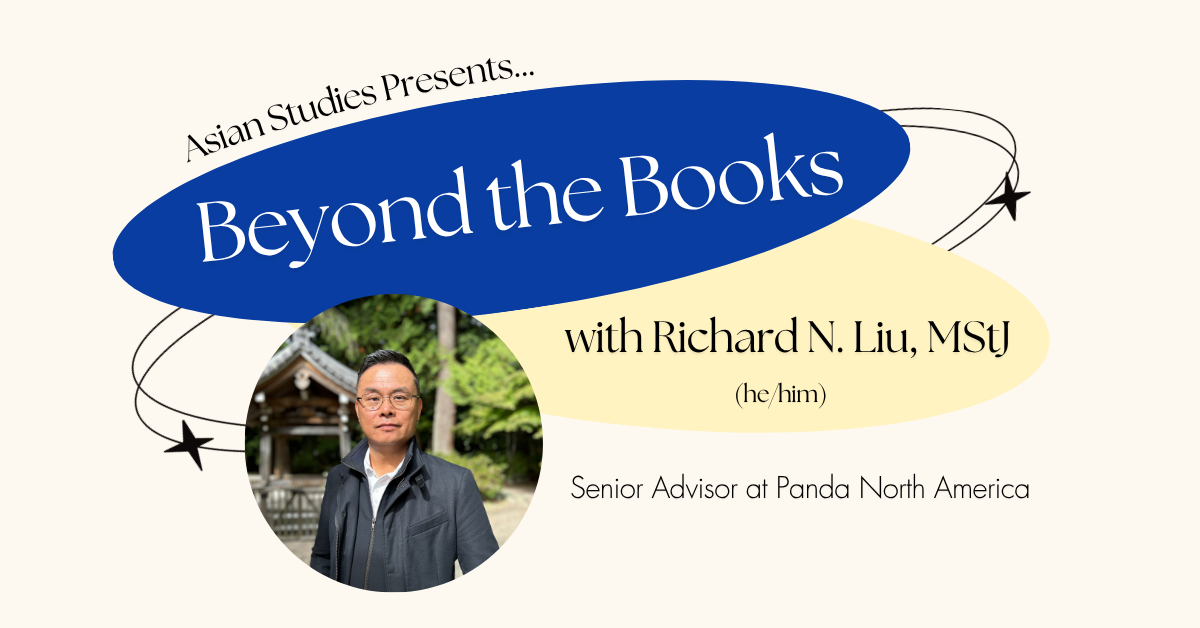Interested in what you can do with a degree in Asian Studies? In our Alumni Spotlight Interview Series, we ask our alumni about their career paths, how they became interested in Asian Studies and for any advice they would give to current students. This interview features Basil Tonks UBC Asian Studies MA 1992 (East Asian Studies). Tonks is currently the Vice-President at Educational Venture Corporation living in Japan.
![DSC_8886-199x300[1]](https://asia.ubc.ca/wp-content/uploads/sites/18/2013/04/DSC_8886-199x3001.jpg)
![DSC_8886-199x300[1]](https://asia.ubc.ca/wp-content/uploads/sites/18/2013/04/DSC_8886-199x3001.jpg)
Who are you?
My name is Basil Tonks. My current title is Vice-President of the Educational Venture Corporation (Edvec) — a small company providing educational materials and software, school management systems and teacher training to the private education sector in Japan. Edvec has international partnerships with material developers in Canada, the U.S.A, China, Korea, India, Hong Kong, Singapore, Australia and Israel. I’ve been involved in the education publishing industry for over 20 years with experience as a teacher, trainer, materials developer and executive.
Where do you live?
I live in Yokohama, Japan but travel extensively around Japan and Asia.
What are you currently doing?
My most recent work relates to participation in the “educational hub” being developed by government, business and academic players in Singapore with an eye to developing a “bridge” between Japan and ASEAN countries in the education sector. At home, I’m conducting ongoing “experiments”in parenting and bilingual education with my son and daughter
How did you start working abroad?
I came to Japan for a six-month stay on a working holiday visa and ended up staying for 20 years!
Where there any programs/people that helped you?
My foreign colleagues and the Japanese people themselves have been my best teachers but my intensive Japanese language study at UBC really made a big difference! Even a little language learning goes a long way.
How is working and living abroad as a foreigner?
Living in Japan as a foreigner means being held to a different standard. Sometimes this is “unfair” but just as often as not the “double standard” can be to the expat’s advantage.
Japan has become much more cosmopolitan over the last 10-15 years but it is still one of the most unique countries in the world. Culturally, if “the different” intrigues you, then Japan is a fantastic place to live. I especially appreciate the Japanese sense of “season” which is expressed in many ways including seasonal menus and the many festivals and events that take place through the year. Economically, in the next few years Japan will be THE place to learn about many of the most severe demographic and economic problems that will soon impact many of the advanced economies of the world. A career here won’t be easy, but the lessons to be learned will prove invaluable in any career field.
Any Advice for other alumni that are hoping to go abroad?
Learn the local language and keep an open but balanced mind about the culture you will be experiencing.
Can you recommend your favorite location in your region?
A stroll down a small backstreet in any big Japanese city will lead to a thousand small discoveries — all you need is a good pair of shoes and a couple of hours to “get lost”.
What is one of your funniest or awkward mistakes as a foreigner?
Japanese etiquette often requires the removal of shoes. At an elegant dinner hosted by our business partners, I clomped back into the tatami room (no shoes allowed!) wearing slippers. Excusable perhaps, except the slippers were “toilet slippers” from the men’s room down the hall — bright blue plastic with illustrated bowls on the toes…


